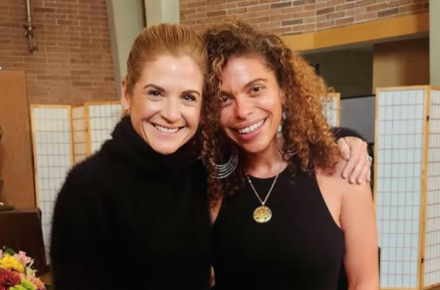To Insist That Sorrow Not Be Meaningless


I recently spoke at a literary festival, and this was the title I gave to my talk. It comes from an elegant essay by Jayne Anne Phillips, one I sometimes read to my students, and each time I arrive at this phrase—“to insist that sorrow not be meaningless”—my voice trembles and catches. It has been the story of my life: this sorrow, this insistence. As I delivered my speech, I found myself focusing on the word insist. The work of being human, of living a life of meaning, does not involve merely, say, hoping that our sorrows not be meaningless. Nor may we kind of, sort of try. No. This insistence is what’s called for, because only insistence will do.
It has been a challenging time. The world seems turned upside down for many of us. All we need to do is turn on the television or spend five minutes on Twitter and we’re faced with a cascade of terrifying news. In my own life, I have been unusually sad—my eyes wide open—the reality of time’s passage, mistakes made, trust misplaced, opportunity squandered. At the same time—eyes wide open—I am aware of enormous good fortune, privilege, great love, profound friendship. This too, this too.
This past year, I have spent time in a locked Alzheimer’s unit at an assisted living facility, listening to my beloved mother-in-law scream in agony. I have watched my husband, brother-in-law, and father-in-law be broken open again and again by the stark underside of love, which is loss. I wandered the halls and saw elderly people staring into space, or lying in their beds, or gazing at fish swimming around in a fish tank. They were all once active, vibrant people. It was impossible not to think: Is this what it comes to? Is this what it all comes to, in the end?
Which, of course, it does.
And so: What does insistence look like for those of us who attempt to put words on paper, to make meaning out of language, to give shape to our experience? Once, this life I live as a writer and a teacher of writing would have felt out-of-reach, unrecognizable to me. As I write these words, I am in my small office in rural Connecticut. My husband—also a writer—is downstairs working on his own writing, or lost in his own head, as I am in mine. We have been together for 20 years. Out the window, I hear the chirping of a mother bird that has made a nest atop our porch light. This afternoon, our boy has a tennis match. Once—a long time ago—I rocked him in my arms, fearing for his life. I’m getting ready to lead a writers’ workshop, one I teach annually. It has come—all of it, every last bit of it—from the stubborn, dogged insistence that all I can do is make something of this life. Make books. Make a family. Make meaning. I can’t make my mother-in-law better. I can’t protect those I love from their own pain. But I have learned that I can build a path with words. I can discover, through the process and craft of writing, everything I still need to know.
Find out about upcoming programs with Dani Shapiro at Kripalu.












































